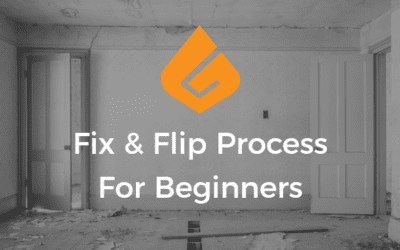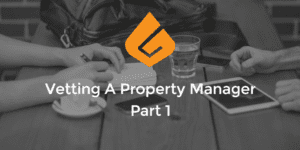Author: Gary Harper
One of the ways in which we have an opportunity as ambassadors to make money is by buying, fixing and flipping a property, and there’s really five steps to that process. One thing that I’m going to do is to do my best today to try to explain to you the fix-and-flip process.
If you’ve never heard about or know really what fix-and-flip is, maybe you’ve heard the terminology but you really don’t understand really what it is, it’s pretty simple in regards to the makeup of what it is. There are some hidden things within fix-and-flip and when you’re doing that you definitely need to be aware of, and so we’ll jump right in. We’ll jump right into the benefits of fix-and-flipping and the strategy with that.
Flipping is a short-term venture. It’s not something you’re going to get into. I mean, you’re not going to hold on to the property for the long term like you would a rent-to-own or a rental property. It works just about in any market, and it can be done part-time. You can actually work a full-time job and fix-and-flip. It doesn’t require a lot of your own money. Basically it provides an equal opportunity investment choice for you and the investor that you might be working with.
There is a five-step process here. The first step in finding the property is you have to find one. You have to actually go out and you have to find a property that you’re going to fix and flip. Second is you have to analyze it, you have to buy it, you have to fix it and then you have to sell it.
Acquire The House.
You have to decide and you have to develop investment criteria. You have to develop what price range you want to be in, condition, location. You have to create a plan to generate leads from there that fit that criteria. Whether you’re using a Realtor to find a property or you’re searching for the property on your own, you have to start off with your own criteria and then you have to generate a plan that actually fits that criteria.
Then have you to analyze the deal. You have to make decisions about which improvements will maximize your profits. You have to create a thorough and accurate improvement budget. You have to determine what you can sell the home for once it’s all fixed up. What is that after-repair value?
Now you have to actually buy the house. You have to make your offer, you have to negotiate with the seller. You have to bring professionals in to perform the final examination of the property or the looking at the repairs that are needed, maybe an inspection and things like that, and then have you to close on the house.
Perform The Flip.
 Then you have to fix the property. You have to determine the improvements that are needed, create a step-by-step construction plan. Your profit will depend on this part the biggest, and then you have to actually start the renovation.
Then you have to fix the property. You have to determine the improvements that are needed, create a step-by-step construction plan. Your profit will depend on this part the biggest, and then you have to actually start the renovation.
Sell The Property.
Once you’ve got the renovation done, now you have to sell the property. You have to set it up for success in the final stage by having good marketing, having good final touches on the property, and we’ll talk a little bit more about selling the property throughout this blog.
Defining your target. Now you’re going back to actually the first step in the process, which is finding the property. You have to define your target. You have to find where you’re going to look for this property, what area are you going to look for it in, what price range you want to be in, and then you have to start generating leads for properties that meet that criteria, as we spoke about. You can do that in a number of different ways. It’s upstream marketing, and you can either bring in a real estate professional like a Realtor to help you find the properties, you can generate leads online. I’ve seen people just post on Facebook.
Actually, one of the savviest investors that I’m very familiar with, he will actually take and post pictures of the properties that he’s already finished online and say, “Hey, if you’re looking to sell your distressed property, look what I’ve done to others,” and he kind of tracks to the hearts of sellers that are in the process of letting go of a property that they can’t maintain it anymore. Maybe it’s their mom and dad’s property and they’d love to see it restored back to its former glory. That’s one way to do it, and I think that’s a very intelligent way to do it. You can put it on Craigslist that you’re looking for properties and what you’re looking for and what your buying criteria is.
However you decide to do it, the most important thing is knowing your numbers, knowing what you want to buy at, knowing what areas you want to buy in, and then making sure that the house doesn’t exceed your budget for repairs. That’s the next step. Now you have the lead, now you have to actually qualify the lead. You have to ask, “Is it in the targeted area that I’m looking for? What kind of condition is it in? Does it have fire damage? Does it have lead paint? Does it have water damage? Is the roof about ready to collapse? Does it have asbestos?” These are pretty high-ticket items, and you want to make sure that you do your due diligence when analyzing the property.
 Once you’ve done that, now you’re moving on to, you know, “I’ve got this property, it meets my needs, I know how much it’s going to take to actually get the work done,” and now you’ve got to actually buy the house. In order to buy the house, obviously you have to put an offer in with the seller, and that may take some negotiation. That may take you doing some work up front and making sure that the seller understands the work that’s going to be needed on the back end.
Once you’ve done that, now you’re moving on to, you know, “I’ve got this property, it meets my needs, I know how much it’s going to take to actually get the work done,” and now you’ve got to actually buy the house. In order to buy the house, obviously you have to put an offer in with the seller, and that may take some negotiation. That may take you doing some work up front and making sure that the seller understands the work that’s going to be needed on the back end.
Make sure that you are in this to make a profit. You’re not in it to live in the property, if you’re using it as an investment property. You are in this to actually buy the house, fix it up and then resell it, so you need to be up front with them. You need to let them know that, “This is what I’m planning to do, and there will be profit that I’m looking to make on the back end, and that’s why I can only pay what I can pay.”
How Fast Can You Close A Deal?
Now, most investors say that they can close quickly and they can pay cash, and those words are used pretty predominantly in the real estate market. Now, what’s going to make you different than most of the other guys that are out there is if you can truly close quickly and pay with cash. At our company, we don’t have a problem with closing quickly or paying with cash. The only thing that ever really holds us up from closing quickly is maybe title work issues or inspection issues, things like that.
Make sure that you’re up front and honest with that seller when you’re negotiating with them, because if they find out along the way that you misled them in any way, not only can it blow up the deal, it could affect how much they’re willing to let that house go for. Honesty is the best policy. Then, you know, you’re going to get an offer accepted and somebody’s going to want to move forward. You’re going to need to make sure that you can close quickly and you can pull your funds together, and then you’re going to have to schedule that closing.
Analyze The Deal.
I want to touch on a little bit more about analyzing the deal and what you need to do to make sure that you’re getting a good deal. Prior to really making that offer, you need to make sure that you’ve done your inspections. You need to make sure that you pull comps in the area. Drive by the comps that you’ve pulled. Make sure that the house and the comps that you pull are similar in size, similar in the type of neighborhood that it’s in.
 You need to make sure that it has the same features. When I say features, if your house that you’re bidding on is a three-bedroom and the house down the street is a two-bedroom, you need to take that into consideration when looking at the comps. If you’ve got a house that’s a five-bedroom, obviously it’s going to sell for more than a house that you have that’s a three-bedroom. You want to be real careful when you’re doing your analysis of the property and what you can sell the house for, and then you need to check with experts.
You need to make sure that it has the same features. When I say features, if your house that you’re bidding on is a three-bedroom and the house down the street is a two-bedroom, you need to take that into consideration when looking at the comps. If you’ve got a house that’s a five-bedroom, obviously it’s going to sell for more than a house that you have that’s a three-bedroom. You want to be real careful when you’re doing your analysis of the property and what you can sell the house for, and then you need to check with experts.
In most areas, real estate investors can go to a real estate agent and ask for a CMA of a property. They can ask for comps for that surrounding area, and it might be something you have to be willing to pay for. You may have to pay a Realtor $100 or so to run a CMA for you, but I’ll tell you right now, it’s much better to do that up front and pay that money than to get stuck with a property that you’ve got your money or your investors’ money in, and you’ve done bad work and you can’t turn around and get the return on investment that’s needed. It’s real important that you do your homework. This’ll help eliminate any sweat, tears and frustration down the road.
Now, when we are looking at a house and determining the rehab costs of a property, if it needs just a little bit of work, literally almost nothing … we will factor about $5 a square foot, if the house just needs a little cleaning and things like that. If it needs like a moderate rehab, mostly cosmetics with minimal inspections and things like that, we’re looking at about $15 a square foot. If it’s a remodel, “replacing” is the key word. If you’re replacing this or you’re replacing that, you’re looking at about $25 a square foot.
Again, these are numbers we use. Obviously you need to use your own numbers in your area, and you need to understand what is best for your area. Then for restructures … this is major layout changes or structural repairs … we’re looking at $40 plus, give or take, on each of these numbers. Those are just rough estimates that we use when we’re looking at accounting for the costs to repair a property.
Know Your Costs.
There are quiet costs too that you’ve got to take into consideration. Buying cost of the property, obviously. Holding cost, that’s like utilities while you’re rehabbing the property. You’re going to have to pay the utilities. You’re going to have to pay for taxes and insurance and things like that, and then the cost of money. If you are borrowing the money, you’re going to have to pay for the principal and the interest of the money, and then selling costs. Real estate commissions, depending on what the ARV and what the house will sell for, they could become costly and you could pay a substantial amount there, and then closing costs.
You need to make sure you’re factoring those things in when you are running your numbers, you’re running the analysis on the property. You’re not just looking at repairs, you’re looking at all costs, and you need to take that and factor it into your offer. Like I said earlier, you really need to make sure that your seller is aware of all your costs and the fact that you want to make money at the end of this.
Then you need to set a minimum profit goal on the deal, and if you can’t get the house for the cost that you need to get it at, in order to do the repairs and make the profit goal that you’ve set with all the costs factored in that we’ve talked about, then you need to be willing to walk away. You need to be willing to move on to your next lead.
Delegate.
 Let’s say the perfect world’s happened. You’ve found the house you want, the repairs are within budget of where you want to be. All the costs associated with it are going to fall within the budget of the costs that you’ve factored in, and you’re going to hit that target goal. Then you’ve got to actually start the work. You’ve got to actually start fixing it, and that looks like this. You’ve got to come up with a scope of work, and you actually have to maybe even hire somebody to help you.
Let’s say the perfect world’s happened. You’ve found the house you want, the repairs are within budget of where you want to be. All the costs associated with it are going to fall within the budget of the costs that you’ve factored in, and you’re going to hit that target goal. Then you’ve got to actually start the work. You’ve got to actually start fixing it, and that looks like this. You’ve got to come up with a scope of work, and you actually have to maybe even hire somebody to help you.
I will tell you that time is money, and if you think that they think they can just jump in and start doing the work themselves, and then a year goes by. They haven’t gotten the work done yet and they’ve drug their feet, and the house is sitting there. Now they’re money’s sat out there that long, they’ve lost that, or they’ve had to pay an investor for their money sitting out there and they have no return coming in on the property yet from a profit standpoint, and now the house is becoming a burden. If that’s going to be case, it’s better that you outsource it and get the work done quickly.
Here’s one thing that most people don’t take into account, is if you take too long to do the repairs on the property, your market could change. If your market changes, that’s going to change everything about the deal. I mean, that may change the deal completely. It might change it to the good, but it might change it to the bad. If it changes it to the bad, you’re going to be left holding the bill, and you’re going to end up selling that property a lot lower than you anticipated. That profit goal’s not going to happen.
There’s three ways to get the work done, in my opinion. You can hire a contractor, a general contractor, and have him oversee it all. You can manage it yourself and then just manage specialized trade people that you’re bringing in to do this and do that, and you could just do it yourself with the help of individual workers. My personal experience is I would much rather hire a general contractor to come in and do the work, manage a project, and hold them accountable to getting the work done and keeping on target with the budget. I just feel like that allows me to focus on other things than spending my time actually working on a rehab.
Sell The House.
Now you’ve got the work done and you’ve got the house ready to go, and you’ve been able to stay on schedule, stay on budget. You ensured quality through the process, and now you have to sell the house. You have to do one of three things, really. You have to decide how you’re going to sell it. You have to decide am I going to sell it as a For Sale By Owner, so you are the person selling it. If you have experience with that, great. Your cost is going to be probably the lowest there if you can sell it yourself, and maybe you have a list of people that want to buy houses, turnkey providers and so forth, that are already rehabbed. That would be a great way for you to sell the property, is For Sale By Owner.
You can hire a real estate agent, and the real estate agent, obviously you’re going to pay a commission to the term, and maybe even an agent bonus. One of the things I like to do when I’m personally fixing and flipping a property is I like to actually put a real estate bonus if I’m using a real estate agent, and say, “Hey, if you or whoever helps to sell this property sells it within this 30-, 60-day window, then I want to pay $1,000 on top of the commission.” That’s going to motivate a real estate agent out there, especially if a time’s come up in their life when they need some extra cash. Not only are they going to get the real estate commission, but they’re also going to get this $1,000 bonus for completing the sale within that time frame. That’s one way to motivate your real estate agent.
Whatever you need to do, whether you decide to sell it yourself or you decide to sell it to a buyers list, or you decide to bring a real estate agent in and sell it through them, there’s three options for you there. Once you decide that, you’ve got to set the selling price, and this is where your homework really comes back into play, because you’ve got to take your comps and now you’ve got to go look at the market again, and you’ve got to make sure those comps are still valid, that nothing else has come on the market and sold during that time frame that’s similar to your house that’s either going to increase the sale of your property or lower the sale of your property. Again, this is why timing is so important. Then you make the sale.
Avoid These Mistakes!
- Buy at the right price. – I want to tell you the four biggest mistakes in flipping properties, buying, fixing and then flipping. One is you’re paying too much for the house. Most real estate investors out there just jump in there and they’ve never done it before and they end up paying too much, or they get this sentimental story from the seller and their heart gets wrapped into it and it becomes more of an emotional purchase than an investment. You’ve got to be wary of that. You’ve got to make sure that you stick to your numbers, and then you walk away if it’s not a right fit for the buying of the property.
- Don’t Overdo The Repairs – People either over-improve or they under-improve the property. I actually sold a house a couple of years ago, and this lady wanted to fix it up and flip it. She was in the process of doing her analysis and she thought, “Well, this area, I really think if I put an extra $100,000 into it, it’ll sell for even more.” Ultimately what ended up happening, she ended up over-improving on the property, and the house sat for a longer period of time because of that. I’m not sure she actually even got what she was wanting to get out of it.
- Delegate – Doing too much work yourself. We talked a little bit about this. Too many people get into wanting to do all the work themselves, and then it just takes way too long.
- Know Your Time Frame – Number four really is letting the project go too long. You need to set a time frame and you need to stay within that time frame, and don’t let it scope-creep. A lot of factors come into play when you allow the project to go too long. The weather could hamper the rehab. and if we started a fix-and-flip project in September, we would set a deadline between 30 to 60 days, because a number of things could happen. We don’t want to run into bad weather, but also people don’t want to buy in bad weather. They don’t want to move their family right at the beginning of the school year, and then they don’t want to move their family while it’s snowing outside.
____________________________________________________
About the Author:
 Gary Harper: With a sharp mind and a wiliness to go the extra mile, you’’ll want him on your team. Advanced tech-knowledge and Business Process Management learned from 15 years working in upper management with fortune 500 companies, keeps him firing on all cylinders. Because he comes stocked with integrity and the ability to relate with people quickly he builds lasting friendships.
Gary Harper: With a sharp mind and a wiliness to go the extra mile, you’’ll want him on your team. Advanced tech-knowledge and Business Process Management learned from 15 years working in upper management with fortune 500 companies, keeps him firing on all cylinders. Because he comes stocked with integrity and the ability to relate with people quickly he builds lasting friendships.
E-mail: Gharper@goodsuccess.com
FIND OUT MORE ABOUT WHAT GOOD SUCCESS CAN OFFER!
Belief Events: Our 2 day event where we show you how we do what we do!
Masterminds: Get around a table with other savvy investors across the country to pick their minds!
Power Days: Come and spend 2 days with us on your time and visit each department!
Online Courses: Take online courses from your home to see how we do what we do!
Find out more about these here: What Good Success Offers
LISTEN TO OUR GOOD SUCCESS PODCAST!
Itunes – Good Success Podcast
Google Play – Good Success Podcast





Very good post. I definitely appreciate this site. Keep it up!
I just like the helpful information you supply on your articles.
I’ll bookmark your weblog and check again here regularly.
I am moderately certain I will be told lots of new stuff right here!
Good luck for the following!
Amazing! Its really awesome piece of writing, I have got much clear idea on the topic of from
this piece of writing.
I am not sure where you are getting your info, but great topic.
I needs to spend some time learning more or understanding more.
Thanks for great info I was looking for this information for my mission.